Open source software is software whose source code is made publicly available for anyone to inspect, edit, or share. Open source is a transparent development model that promotes community contribution and development. Developers who modify open source software do so under an explicit license provided by the company, nonprofit organization, or foundation that manages or oversees the product.
Software is open source, not companies—which means some vendors offer both proprietary and open source solutions. We’ve compiled a list of 34 of the top open source providers in a range of categories along with details about each business and its most popular products or services to give you a clearer picture of the open source landscape in 2024.
Open Source Data Management Software Companies
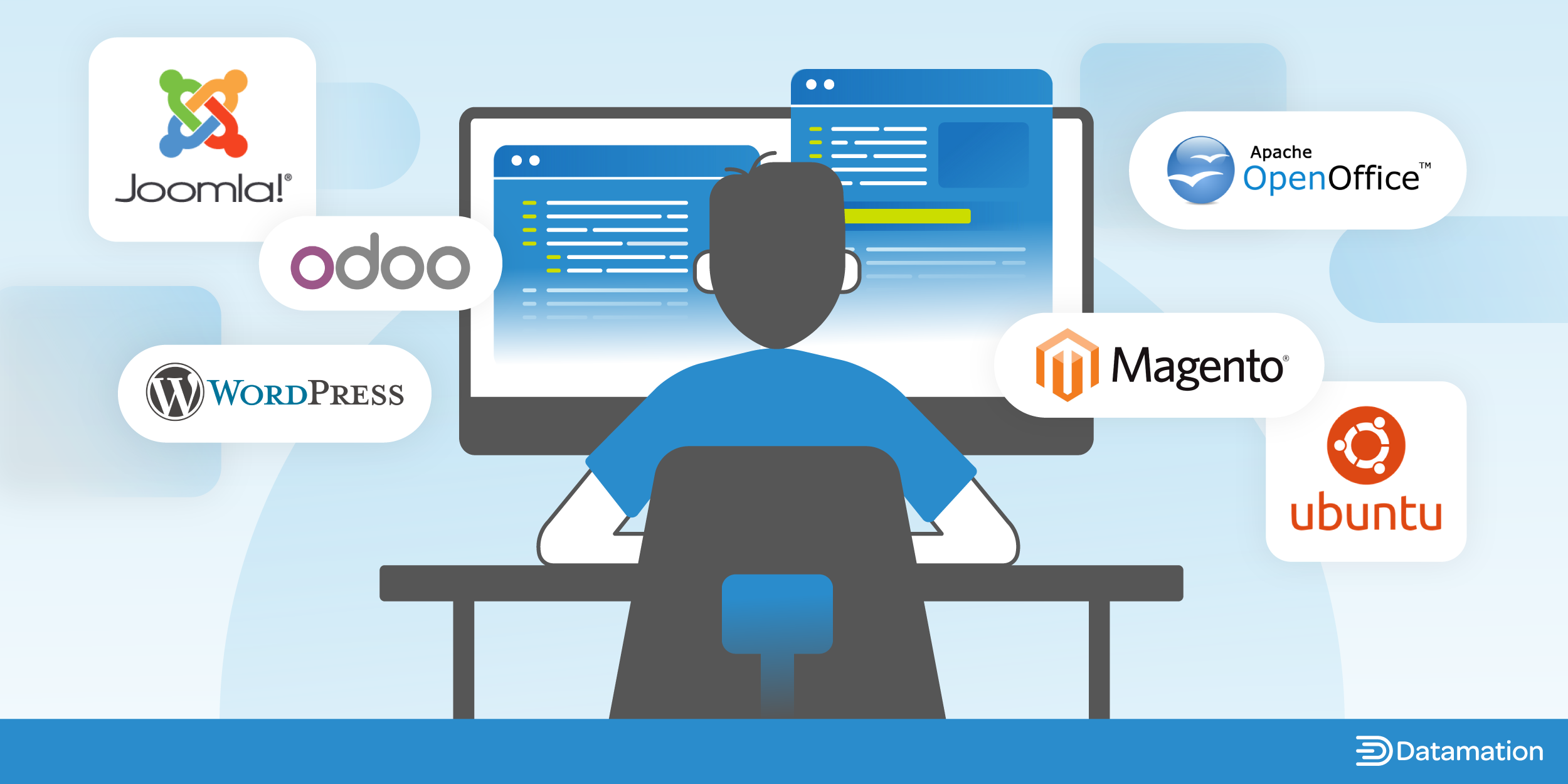
Open source data management software provides organizations with the flexibility to personalize their data management capabilities while reducing vendor lock-in expenses. This software consists of tools designed to speed up the storage, retrieval, and manipulation of data within the enterprise.
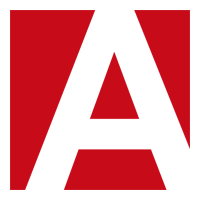
AtroCore
AtroCore is an open source software company that specializes in the development of web-based enterprise resource planning (ERP), product information management (PIM), and customer relationship management (CRM) applications. These applications are licensed under the GNU General Public License version 3 (GPLv3), which offers a dynamic data model and an application programming interface (API)-first architecture that lets enterprises easily integrate and manage their data resources.
Product Portfolio
AtroCore has a collection of open source software products designed specifically for business data management. This comprehensive suite comprises AtroCore—a versatile data platform that simplifies data management and synchronization—as well as AtroCore PIM, a powerful Product Information Management system. In addition, AtroDam offers effective control over digital assets, and the suite includes a customizable software development service built on the customizable AtroCore platform.
Visit AtroCore
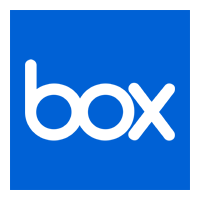
Box
Box is an open source software producer and cloud service company that specializes in security and workflow efficiency, with users ranging from the U.S. Air Force to Morgan Stanley. As an open source developer, Box has released more than a dozen open programs and software development kits.
Product Portfolio
Among Box’s most impressive open source contributions is Spout, a PHP library that can read and write large CSV and XLSX files while keeping memory usage below 10 MB. Box also offers many plugins and prebuilt UI components to use on its platform that make the environment easier to use and configure to specific use cases, fueling its popularity among many audiences.
Visit Box

Databricks
Databricks is a software vendor and Apache Spark-powered cloud platform provider. The organization centers around what it calls a “lakehouse platform,” which combines aspects of a data warehouse and a data lake. The platform is based on open software and standards and is used by organizations like the Food and Drug Administration and AT&T.
Product Portfolio
The lakehouse platform itself is open source, as are its first-party plugins. Chief among these is Delta Lake, an open-format storage layer that lets you build a lakehouse architecture over existing storage systems like AWS S3.
Databricks says another of its open source projects, Delta Sharing, is the first open protocol for secure data sharing. This lets Delta Lake users or other cloud adopters transfer and share files between platforms without jeopardizing security.
Visit Databricks
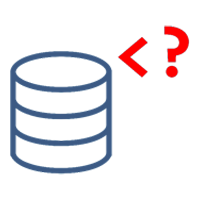
Adminer
Adminer is a SaaS company with vast experience building database management software. Its focus extends from open source tools to sophisticated enterprise applications. Its latest full-featured version, v4.78, is just 478 KB. The more stable version adds support for the recently released PHP language PHP8.0 compared to the MySQL-only version (r54KB). These characteristics make Adminer a resource-efficient tool as an open source database manager.
Product Portfolio
Adminer is a lightweight alternative to phpMyAdmin. This single-file solution supports a variety of database systems via plugins, including MySQL, MariaDB, PostgreSQL, SQLite, MS SQL, Oracle, ElasticSearch, and MongoDB. In addition, Adminer supports PHP 5 and connects to any database server. It allows for managing databases, tables, views, and executing SQL commands. Users can easily export data and customize it extensively according to their preferences.
Visit Adminer

MongoDB
MongoDB began as an open source database company and has grown to offer a wide range of products. The company first provided free database software and has since expanded to offer a variety of products.
Product Portfolio
MongoDB’s set of services includes managed cloud database Atlas, graphical user interface Compass, and Realm, a serverless platform. In addition to these products, MongoDB also offers Ops Manager for monitoring business processes to optimize and maximize profitability, and MongoDB for educational resources that address both operational demands and learning possibilities in the MongoDB community.
Visit MongoDB

DBeaver
DBeaver is an IT company with a comprehensive database management tool designed for a diverse range of users who work with data professionally. It supports over 80 databases and includes features such as database structure diagrams, SQL templates, and smart assistance for SQL. DBeaver’s purpose is to make data accessible and manageable for anyone, and it keeps an open source philosophy.
Project Portfolio
DBeaver’s core product, the DBeaver database management tool, is available in two versions: the free and open source community edition, widely used for general database management tasks, and the enterprise edition, a commercial vision that includes additional features and supports enterprise databases. CloudBeaver is a web-based version developed for cloud databases providing remote access to database servers. The team edition focuses on collaboration, allowing teams to work together on database projects.
Visit DBeaver

HashiCorp
HashiCorp is another wholly open source-focused organization. The company, which develops cloud computing tools, has committed to keeping its core technologies open. That model is paying off, as HashiCorp sees more than 250 million open source downloads annually.
Product Portfolio
HashiCorp offers eight open source tools today: Packer, Vagrant, Terraform, Consul, Boundary, Vault, Nomad, and Waypoint. Packer and Terraform automate cloud infrastructure building and management projects, while Nomad, Waypoint, and Vagrant focus on cloud app development and implementation. Vault and Boundary provide security controls, and Consul automates service networking across multiple cloud environments.
Visit HashiCorp
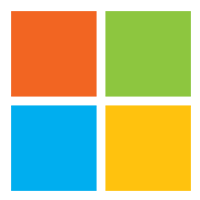
Microsoft
Despite building its name on proprietary software, Microsoft is the largest contributor to open source projects in the world. The company extensively uses open tools in its development, and its massive range of company-and-employee-made open products covers multiple use cases.
Product Portfolio
One of Microsoft’s most significant open source projects is Azure SDK, a set of libraries to help developers leverage the Azure cloud product suite. Accessibility Insights is a similar tool, providing monitoring and checking features to find and fix accessibility issues in Windows, Android, and web apps. Other noteworthy projects include Kubernetes Event-driven Autoscaling, an application autoscaling tool for Kubernetes, and Open Education Analytics, which aids collaboration between educational organizations for data and AI projects.
Visit Microsoft
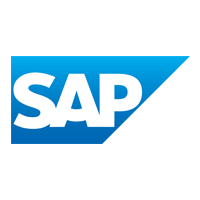
SAP
SAP is another familiar name in software that’s started to lean toward open source development in the past few years. The enterprise application organization focuses on management and business intelligence products, though its open source projects focus on app and cloud development. In 2023, SAP ranked among the top 10 commercial contributors to open source software, cementing its status in this list.
Product Portfolio
SAP has six lead open source projects, including Gardener, an enterprise-level Kubernetes service management tool, and OpenUI5, which uses open standards to streamline web app development. SAP also contributes to popular open source projects outside its organization, including Linux, Apache, and OpenJDK.
Visit SAP

MariaDB
MariaDB is a company known for its open source relational databases. MariaDB’s commercial impact includes more than 1 billion downloads, approximately 200,000 open source contributions, and widespread adoption via Linux distributions.
Project Portfolio
MariaDB’s main product is the MariaDB Database, a low-cost alternative with advanced features such as columnar analytics and JSON support, and a Managed Cloud Service that provides comprehensive cloud database solutions. The company has received industry leadership in the G2 Grid for Relational Databases and inclusion on the database trends and applications’ (DBTA) Big Data 50 list.
Visit MariaDB
Open Source Data Analytics Software Companies
Open source data analytics software provides cost-effective options for processing large datasets. Taking advantage of open source data analytics software allows organizations to efficiently analyze, derive insights, and process data while minimizing costs and maximizing flexibility.

KNIME
KNIME is a prominent open source platform for data analytics offering capabilities in reporting, integration, and mining. Its modular approach allows users to design and execute data workflows, incorporating diverse data manipulation and analysis methods for comprehensive insights.
Product Portfolio
The KNIME Analytics Platform is the core offering, providing a visual interface for building data workflows. It supports a wide range of data manipulation and analysis methods, and its modular structure allows users to integrate various plugins and extensions. KNIME Server enables collaboration and automation of workflows, and KNIME Hub serves as a platform for sharing workflows and components within the KNIME community.
Visit KNIME
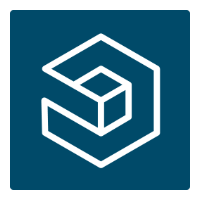
Logz.io
Logz.io, a cloud-based observability company, focuses on open source log management, data monitoring, and analytics through its Open 360 Platform. The unified platform lets companies organize and analyze log data, which may help enterprises get insights into their systems, diagnose issues, and track performance.
Product Portfolio
Logz.io’s Open 360 Platform features include log aggregation, search capabilities, visualization tools, and connectors with other monitoring and alerting systems. It supports common logging frameworks such as Elasticsearch, Logstash, and Kibana (ELK stack). Users can provide their log data to Logz.io, which will process and store it in a scalable and accessible way.
Visit Logz.io
Open Source Data Security Software Companies
Open-source data security software allows organizations to strengthen their digital defenses at a low cost, provided they have the requisite technical expertise. These open source security software provide cyber security needs, including password protection, cloud and identity security, open source intrusion detection and prevention, and other open source network vulnerabilities.
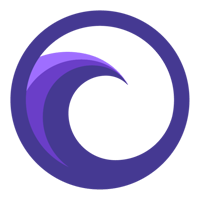
Strata IO
Strata Identity Orchestration (IO) is one of the newest companies on this list, completing its Series B funding in 2023, but it’s already making considerable waves. The company’s primary product, the Maverics IO Platform, secures app identity controls in cloud environments and is closed, but the underlying technology is open.
Product Portfolio
Strata IO’s most significant open source contribution is the Identity Query Language (IDQL) Standard. IDQL is an open standard for identity access policies, making creating and managing identity and access management (IAM) tools easier. A related open source project, Hexa, translates proprietary IAM policy standards into IDQL to let multiple IAM systems run together in a single environment.
Visit Strata IO
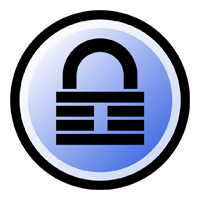
KeePass
KeePass is an independently developed free and open source software and password manager that securely stores passwords that use AES-256, ChaCha20, and Twofish as its database encryption algorithm. It is a lightweight software compatible with Windows, Mac, and Linux, and has ports for Android, iPhone/iPad, and other mobile devices.
Product Portfolio
Keepass lets its users remember one master password to access their password database which can include strong and unique passwords for various online accounts. The original version, KeePass Password Safe, is for Windows; other variants like KeePassXC and KeePassDroid have cross-platform compatibility and work with mobile devices. KeeWeb also offers a web-based solution.
Visit KeePass
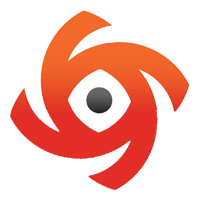
OSSEC
Open Source Security, or OSSEC, is a free open source intrusion detection platform and prevention system currently maintained by Atomicorp. It is intended to monitor and analyze log data, alerting managers to potentially malicious activity or secure problems on the network. OSSEC supports host-based intrusion detection, log analysis, vulnerability identification, and other security features.
Product Portfolio
OSSEC is a powerful security management platform that includes features like log-based intrusion detection, rootkit, and malware detection, active response mechanisms, compliance auditing, file integrity monitoring (FIM), and system inventory capabilities. In addition to the free, open source version with customization possibilities, Atomicorp provides an upgraded OSSEC+ version that includes a machine learning system, community threat sharing, and ELK stack integration. Atomic OSSEC provides enterprise-level features that offer sophisticated features such as web-based management, compliance tools, real-time forensic monitoring, cloud integration, and virus protection.
Visit OSSEC
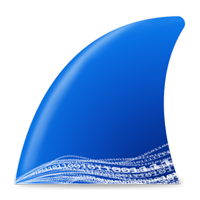
Wireshark
Wireshark is a popular open source network protocol analyzer that allows users to capture and analyze data flowing across a network in real-time. It is often used for network troubleshooting, traffic analysis, and understanding device communication. It is maintained by the nonprofit Wireshark Foundation.
Product Portfolio
Wireshark is a standalone network protocol analysis tool that focuses on packet capture and analysis, live and offline data inspection, and recognizing many network protocols. In addition, it provides a user-friendly graphical user interface (GUI) for going through collected data and examining packets. This makes Wireshark a flexible tool for network monitoring and troubleshooting in a variety of situations.
Visit Wireshark
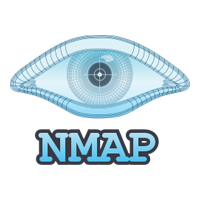
Nmap
Network Mapper, or Nmap, is an independently developed, lightweight vulnerability platform that is popular for its network discovery and port scanning. It allows you to easily scan systems by discovering hosts, ports, services, and vulnerabilities and analyzing network traffic and log files. In addition, it integrates with GUIs and other security applications, improving usability and analysis.
Product Portfolio
Nmap features include host discovery, port scanning, version identification, OS fingerprinting, and scriptable interaction via the Nmap scripting engine (NSE). The program can detect live hosts, open ports, services, and network vulnerabilities in its scanning settings. Nmap offers a variety of output formats and target specifications making it versatile for different use cases.
Visit Nmap

Posit
Posit provides a modular data science platform formerly called RStudio that integrates a development environment for R and Python to let you create tools for individuals, teams, and enterprises. It’s a go-to option for sophisticated data analysis, robust statistical modeling, and intricate machine-learning applications that encourage creativity from its contributors.
Product Portfolio
Posit offers Databricks integration, Python, and special offers for the pharmaceutical and financial industries. It includes specialized tools for serious data research and extensive business intelligence capabilities. Posit also integrates with leading cloud platforms such as Amazon SageMaker, Microsoft Azure, Posit Cloud, AWS, and Google Cloud giving users a flexible and scalable environment for data analytics and machine learning environment.
Visit Posit
Open Source AI/ML Companies
Open source artificial intelligence and machine learning (AI/ML) companies provide user-friendly, configurable, and collaborative tools for building and delivering enterprise solutions. Organizations use these platforms to leverage AI’s potential to obtain insights, enhance decision-making, and derive innovation across various domains.

Another household name, Meta—best known for Facebook and Instagram—is likewise a considerable contributor to open source software. While its social media platforms are closed, the technology company has more than 600 open source projects available today, including PyTorch.
Product Portfolio
PyTorch is Meta’s leading open product. This machine learning framework builds on the Torch library and offers a user-friendly way to develop and train intelligent models, including frictionless cloud development and scaling. Meta also develops React—a Java library for building UIs—and Docusaurus, which simplifies the website development and optimization process. As you might expect from Meta’s virtual reality products like Quest, the company also produces open virtual reality (VR) projects, including image synthesis and physics tools.
Visit PyTorch
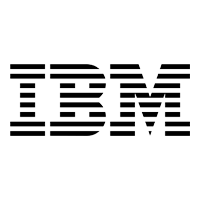
IBM
IBM is one of the longest-standing companies in the technology industry, and it’s been a leader in open source software for nearly as long. The corporation has more than 25 years of experience developing open tools and over 3,000 employees actively contributing to these projects.
Product Portfolio
As such a large organization, IBM has an impressive suite of open source software products. One of the most notable is Machine Learning Exchange, which offers free, deployable deep learning models, democratizing IBM’s leadership in the machine learning space. Other IBM open source projects include Incident Accuracy Reporting System, which automates police incident reporting processes, and Data Asset eXchange, where enterprise users share data science libraries and tools.
Visit IBM

TensorFlow
The Google Brain team—Google’s AI development arm—created TensorFlow, an open source software library designed primarily for machine learning and artificial intelligence activities. It’s now run on an Apache Foundation license. The product focuses on deep neural network training and inference and supports a wide number of programming languages and platforms, making it suitable for a variety of applications across industries.
Project Portfolio
TensorFlow Core is designed for building complicated machine learning models, while TensorFlow.js for JavaScript machine learning, TensorFlow Lote is for mobile and edge devices, and TensorFlow Extended (TFX) is for deploying production-ready machine learning pipelines. The product also includes tools for data preparation, model creation, and deployment across several platforms enabling a complete ecosystem for end-to-end machine-learning projects.
Visit TensorFlow
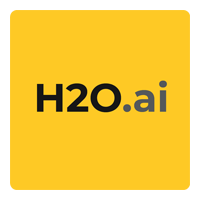
H2O.Ai
H2O.Ai is an open source company that boasts more than 18,000 organizations as customers. The company’s base open source product, H20, supports multiple programming languages and offers several automation features to democratize and streamline machine learning development.
Product Portfolio
H2O is not the only open source project in the company portfolio. It also develops Sparkling Water, an Apache Spark plugin for H2O; Driverless AI, which automates steps like model building; and H2O Wave, which offers real-time dashboards and web apps for AI developers.
Visit H2O.ai

Rapid Miner
RapidMiner’s eponymous open source data science platform offers a comprehensive environment for data preparation, machine learning, and advanced analytics. It is intended to let users like data scientists and business analysts explore, analyze, and model data effectively.
Product Portfolio
RapidMiner the company provides a variety of solutions, including RapidMiner Studio for developing and delivering predictive models; RapidMiner Server for collaboration and automation; and RapidMiner AI Hub for managing and deploying AI models. It supports a variety of machine-learning methods and has a visual interface for workflow planning.
Visit Rapid Miner
Open Source Developer Software Companies
Open source developer software is a collection of tool libraries, frameworks, and resources created to help with the software development process. They frequently incorporate integrated development environments (IDEs), version control systems, project management tools, and collaborative capabilities.

Google
Google is one of the most significant contributors to open source software. It was the original developer of Kubernetes before the Cloud Native Computing Foundation (CNCF) took over, and is responsible for Android, the world’s most popular mobile operating system, which is also open source.
Product Portfolio
In addition to Android, Google offers Chromium—the open source browser technology powering Google Chrome—and Chromium OS, Google’s web-based operating system. Google has also developed Go, an increasingly popular programming language.
Visit Google
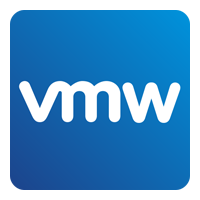
VMware
VMware, now a part of Broadcom, specializes in cloud computing services and virtualization software. The company is also a member of the Linux Foundation, the CNCF, and OpenSFF, all of which it regularly contributes to in addition to developing its own open source projects.
Product Portfolio
One of VMware’s most popular open source products, Spring, is the world’s most widely used Java framework thanks to its simplicity and emphasis on making Java development faster and safer. VMware also develops Herald, which supports Bluetooth applications across multiple devices; Harbor, a container image registry; and RabbitMQ, which consolidates numerous messaging protocols to enable easier messaging app development.
Visit VMware

Red Hat
Red Hat is an enterprise software company that has been a leader in open source software for years. The largest open source software company in the world specializes in cloud computing tools, though it also has many Linux and Kubernetes technologies.
Product Portfolio
All of Red Hat’s products are open source, setting it apart from many groups on this list that also produce closed commercial tools. One of the most significant is Ansible, a platform for automating IT tasks to support DevOps. Other projects of note include the Red Hat OpenStack Platform, which virtualizes hardware and organizes these packages in the cloud, and OpenShift, an enterprise-ready, heavily automated Kubernetes platform.
Visit Red Hat

Oracle
Oracle is another software giant with multiple open source projects in its portfolio. While the company’s commercial offerings focus on cloud computing apps and infrastructure, its open source tools cover a wider range of applications. On top of creating its components, the organization’s employees contribute to Linux and Kubernetes, among other popular open source projects.
Product Portfolio
The most notable entry in Oracle’s open source portfolio is Java. Java is one of the best programming languages for beginners, thanks to its extensive use, relative simplicity, and large support community. Oracle also runs a library of images and configurations for Docker, as well as a Linux distro, the popular MySQL database, and Tribuo, which helps develop machine learning models in Java.
Visit Oracle

Builder.Io
Builder is an open source software with a visual content management system offering drag-and-drop functionality and API-based infrastructure to integrate with other apps. In addition to its central platform, the company, Builder.Io, has released five open source projects and 52 repositories.
Product Portfolio
The Builder.io platform is closed-source, but its built-in components like images, text, and columns are open. Its developer tools are also open source. Builder’s offerings include Qwik, a framework for building instant-on apps, Partytown, which relocates resource-intensive scripts to improve performance, and Mitosis, a universal components compiler.
Visit Builder.io

Docker
Docker is one of the most familiar names in open source software for many developers. The company’s container-based platform-as-a-service ranked as the most beloved tool in Stack Overflow’s 2022 Developer Survey. It introduced what’s now the standard for containerization and remains a leading software development platform.
Product Portfolio
Docker’s primary platform, the Docker Engine, is open source. The engine uses APIs to help users build and containerize applications and comes in several packages, ranging from personal use to enterprise-level platforms.
In addition to its main engine, Docker also offers at least 12 other open source projects with multiple Docker-adjacent features. Compose helps run multi-container apps, and Moby provides specialized tools to streamline the assembly of unique containerized applications.
Visit Docker
Other Open Source Software Companies
The following organizations have helped transform the open source software environment by adopting and advocating open source ideals, encouraging collaboration, and pushing innovation across several sectors.
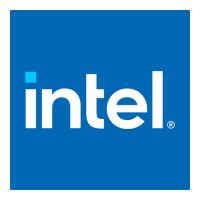
Intel
Intel is another recognizable corporate name with significant open source contributions. While you likely know the company as a chip developer, Intel’s hundreds of open source projects cover various applications, from AI development to Internet of Things (IoT) management.
Product Portfolio
Intel’s most popular open source product is Open Federated Learning, a Python-based software development framework popular among data scientists and game developers. Another widely adopted project is QEMU, a machine virtualization platform. Intel also produces many Linux tools, including the Linux kernel at the heart of many Chromebooks, and specialized security systems for the OS.
Visit Intel
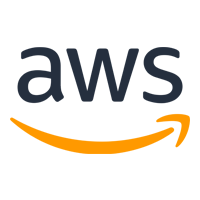
Amazon Web Services
Amazon Web Services (AWS) is one of tech’s “Big Five” and a leader in the cloud computing industry, but it’s also a significant contributor to open source software. The tech giant’s employees have spearheaded over 1,200 projects on GitHub. Many of AWS’s most popular tools and services are also based on open source projects.
Product Portfolio
One of AWS’s most popular open source products is its Cloud Development Kit (CDK). AWS CDK lets users build custom cloud applications using familiar programming languages and preconfigured components, aiding faster development.
AWS also has a suite of other services based on popular open source projects, like the Linux-based Bottlerocket OS and its Elastic Kubernetes Service. Other products of note include Firecracker, OpenSearch, and AWS Amplify, all of which help build and manage websites or other cloud applications.
Visit AWS
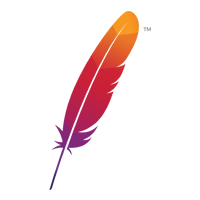
The Apache Software Foundation
Many leaders in the open source space are nonprofit organizations, and the Apache Software Foundation (ASF)—the world’s largest open source foundation—is a prime example. ASF includes tens of thousands of members, but the organization itself is responsible for more than 350 open source projects.
Product Portfolio
Apache Spark is one of ASF’s most popular releases. The multi-language data processing tool is a staple for data science and machine-learning processes, and has been used by organizations from NASA to eBay. ASF is also responsible for Hadoop, a big data software library; Kafka, which powers real-time data applications like Uber’s driver matching; and CloudStack, a virtual machine deployment platform.
Visit Apache
Cloud Native Computing Foundation
Many people associate open source software with smaller companies like Builder and Box, but large developers like the CNCF account for a considerable portion of the industry. CNCF focuses on cloud computing apps and resources, with more than 150 projects and 187,000 contributors to its name.
Product Portfolio
CNCF’s most recognizable project is Kubernetes. The container orchestration system sees use in 61 percent of global organizations today and has quickly become an unofficial standard for containerization. The Foundation also manages Prometheus, a data monitoring and visualization platform; Argo, a Kubernetes-based continuous integration and delivery engine; and Rook, a cloud-native storage solution. Dozens more projects populate CNCF’s portfolio across various stages of development.
Visit CNCF

BigQuery by Google
BigQuery is a fully managed, serverless data warehouse that enables fast SQL queries using the processing power of Google’s infrastructure. Part of the Google Cloud Platform (GCP) it is designed to handle and analyze large datasets in real time.
Product Portfolio
BigQuery operates in a serverless model eliminating the need for customers to maintain infrastructure while seamlessly integrating with other GCP services. Scalability for large datasets, support for typical SQL queries, and integration with machine learning capabilities are a few of its notable features. Beyond BigQuery, the GCP portfolio includes a diverse set of services including computation, storage, big data analytics, and networking-forming a comprehensive ecosystem for various cloud computing requirements.
Visit BigQuery
Frequently Asked Questions (FAQs)
Open-source software allows developers to contribute and enhance their applications. This provides a high level of customization specifically to the unique needs of an organization. Here is a set of commonly asked questions regarding open source software, its dynamics, and the valuable opportunities it presents to developers and businesses.
How many companies are using open source?
According to Gitnux, 78 percent of companies in the world are using open source software because of its easy implementation. This allows developers to have a sense of ownership and customize their software according to their organization’s specifications.
How is open source free?
Open source software comes with a distribution license where anyone can access and use the repository code to contribute designs and improvements. This allows developers to take advantage of being a part of a large community that can also help other individuals and organizations tailor their software according to their preferences. That said, even “free” software can require significant implementation and upkeep costs.
Who benefits from open source?
Open source software provides various benefits to developers and organizations, such as cost savings, flexibility, global innovation, vendor independence, and lower dependency risks. This makes the software more adaptable to shifting technologies and trends, keeping it current and up-to-date. Developers obtain excellent learning experience by being exposed to various coding styles, and community support. The ability to pick from a variety of licenses provides open source a foundation for collaborative, inventive, and cost-effective software development.
Bottom Line: Open Source Software Benefits Developers and Organizations
The tech industry is rapidly evolving, and so should the way organizations handle their data and their chosen software. Open source software has been the go-to option for the majority of organizations worldwide as it allows their IT team to fully customize their software to make it easier for them to adapt to the constant change in the industry.
Given that they have access to the open source code, this fosters their collaboration among a global community by facilitating rapid innovation and reducing development costs. This will also help enhance their security through transparency, promoting interoperability, fostering vendor independence, and empowering both organizations and their IT developers with greater control and flexibility over their software solutions.
See our list of the 100 top trendsetting AI companies to learn about more of the organizations shaping enterprise technology in 2024.










